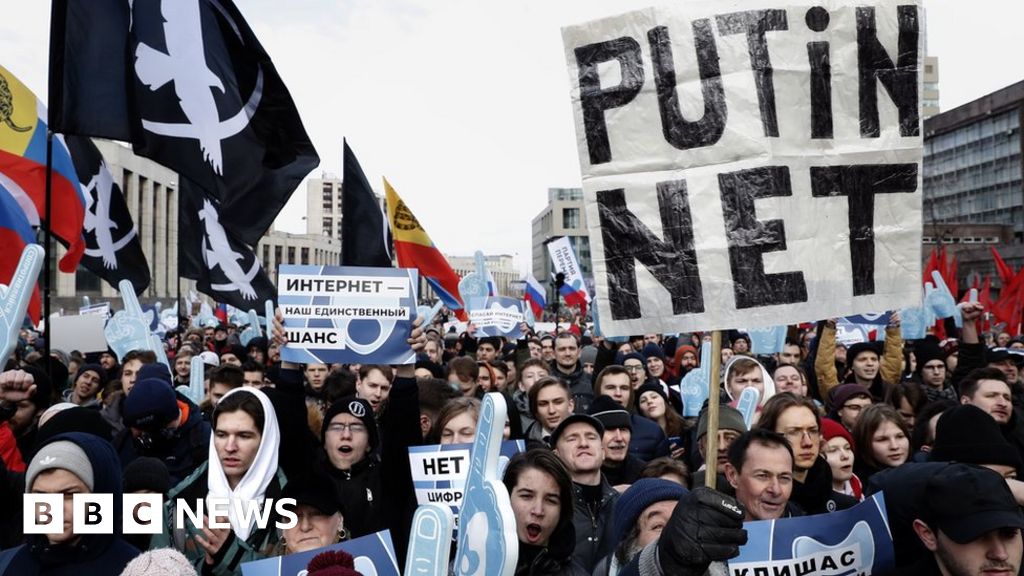Russia Tightens Grip On Its National Net

 Image copyright
EPA
Image copyright
EPA
Russia has formally adopted a law that gives its government more control over its domestic internet.
The law means the systems that exchange data between the networks forming the Russian internet must share more information with government regulators.
It also lets regulators exert direct control over what Russians can post, see and talk about online when national security is threatened.
Russian net firms have until 1 November to comply with the law.
Widespread protests were mounted in a bid to stop the law being passed.
The legislation is part of a long-running plan within Russia to rely less on networks outside the country to help data reach its destination.
Instead, Russia wants traffic sent between its citizens to stay inside its cyber-borders instead of travelling across international networks, over which it has less control.
To help with this project, Russia is also working on developing its own net address books so it can operate almost autonomously, although this work will not take effect until 2021.
Eventually, the Russian government wants all domestic traffic to pass through routing points over which it has close oversight.
The Putin government has said the law is needed because of ongoing threats from many nations to retaliate over Russian meddling in elections and politics.
Analysis published early in 2019 suggested the law was part of an effort to set up a mass censorship system similar to that operated in China, which tries to scrub out chat about controversial subjects.
Russia has also recently passed laws that ban "disrespect" of the government. Repeat offenders who are blatant in their criticism of the state, its officials and Russian society could face up to 15 days in jail.
From Chip War To Cloud War: The Next Frontier In Global Tech Competition
The global chip war, characterized by intense competition among nations and corporations for supremacy in semiconductor ... Read more
The High Stakes Of Tech Regulation: Security Risks And Market Dynamics
The influence of tech giants in the global economy continues to grow, raising crucial questions about how to balance sec... Read more
The Tyranny Of Instagram Interiors: Why It's Time To Break Free From Algorithm-Driven Aesthetics
Instagram has become a dominant force in shaping interior design trends, offering a seemingly endless stream of inspirat... Read more
The Data Crunch In AI: Strategies For Sustainability
Exploring solutions to the imminent exhaustion of internet data for AI training.As the artificial intelligence (AI) indu... Read more
Google Abandons Four-Year Effort To Remove Cookies From Chrome Browser
After four years of dedicated effort, Google has decided to abandon its plan to remove third-party cookies from its Chro... Read more
LinkedIn Embraces AI And Gamification To Drive User Engagement And Revenue
In an effort to tackle slowing revenue growth and enhance user engagement, LinkedIn is turning to artificial intelligenc... Read more

